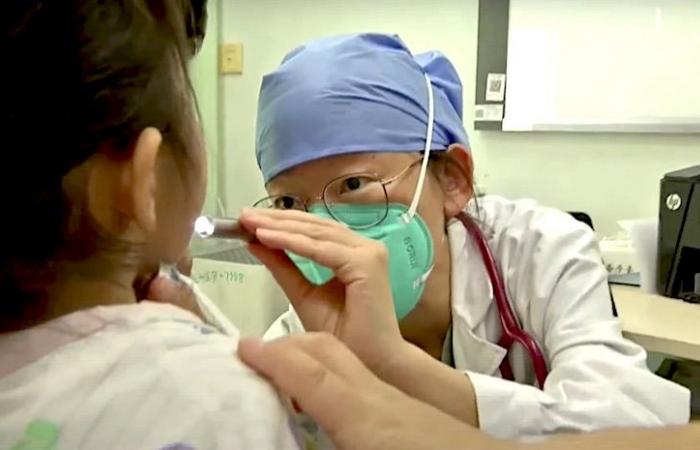Flu alert in Shanghai
Recent data from the Shanghai Municipal Center for Disease Control and Prevention indicates a significant increase in influenza virus activity, marking the city’s entry into the peak flu season. The outpatient department of Chongming Hospital, affiliated with Shanghai University of Medicine and Health Sciences, has seen a steady flow of patients in recent days. However, the intensity of the epidemic still remains within the average observed in previous years.
The flu remains in its seasonal epidemic phase, with a rapid increase in virus positivity rates, according to the press briefing of the National Health Commission this Sunday, January 5. As the Chinese New Year approaches, residents are nevertheless encouraged to get vaccinated quickly and adopt protective measures, particularly when traveling, experts warned at the press conference.
Increased risks for children
Influenza, rhinovirus and haemophilus influenzae are the most frequently detected pathogens in ambulatory and emergency cases, according to the report from the Shanghai Municipal Center for Disease Control and Prevention. Among hospitalized patients with severe acute respiratory infections, mycoplasma pneumonia has the highest positivity rate, especially in children.
Professor Zeng Mei of the department of infectious diseases at the National Children’s Medical Center, affiliated with Fudan University, said flu activity usually peaks between December and January, with the season lasting until April. People experiencing flu symptoms are advised to seek prompt medical attention, rest, stay hydrated, and begin antiviral treatment under professional guidance.
What to do if you have flu symptoms?
Professor Zeng stressed that antibiotics are ineffective against the flu and antiviral drugs should not be used to treat the common cold. Parents were reminded to keep children with flu symptoms at home to prevent further spread. Specialized antiviral medications for children are available and should be administered within 48 hours of the onset of symptoms under medical supervision. Symptom relief, including reducing fever and relieving cough and nasal congestion, should be appropriate for the child’s age and weight.
Experts point out that vaccination remains the most effective means of preventing influenza, significantly reducing the risk of serious complications. The authorities recommend annual vaccination for optimal protection.






